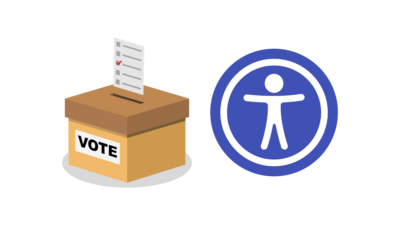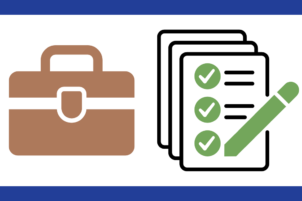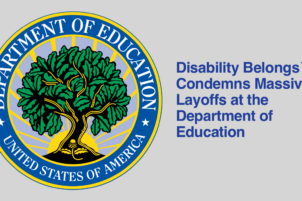 In the Presidential election of 2020, a record number of people with disabilities voted at the polls. Unfortunately, a record of another kind was set in 2021, when 33 laws were passed that made it more difficult for Americans to vote. This resulted in a significant decrease in voting participation by people with disabilities in 2022. According to findings by the U.S. Election Assistance Commission (EAC), people with disabilities were twice as likely as non-disabled voters to experience challenges while voting in 2020; that number grew to three times as likely in 2022.
In the Presidential election of 2020, a record number of people with disabilities voted at the polls. Unfortunately, a record of another kind was set in 2021, when 33 laws were passed that made it more difficult for Americans to vote. This resulted in a significant decrease in voting participation by people with disabilities in 2022. According to findings by the U.S. Election Assistance Commission (EAC), people with disabilities were twice as likely as non-disabled voters to experience challenges while voting in 2020; that number grew to three times as likely in 2022.
Barriers experienced by disabled voters ranged from wheelchair-inaccessible polling places, voting machines that are accessible to blind and low-vision voters being turned off or unplugged, poll workers not knowing how to use accessible voting equipment, inaccessible mail-in ballots, and challenges communicating with polling staff. According to the most recent EAC study, people who have vision or cognitive disabilities were more likely to experience voting accessibility barriers in 2022 than people with any other type of disability. Additionally, the study noted that people with disabilities were less likely to experience accessibility barriers while voting via mail or absentee ballot and used that method more frequently than their non-disabled peers. However, 17 voting barrier laws were passed in 2023 that make voter registration and mail-in/absentee voting processes more challenging. Absentee ballots continue to be inaccessible to many voters who are blind or have low vision, have intellectual or cognitive disabilities, and have disabilities that impact mobility.
RespectAbility and other members of the National Coalition on Accessible Voting hope to reverse this trend of increasing barriers and decreasing participation of voters with disabilities by calling for the re-introduction of the Accessible Voting Act (AVA). The AVA would:
- Establish the Office of Accessibility within the EAC to monitor and support state voting accessibility efforts
- Create a National Resource Center on Accessible Voting, which would provide training to poll workers and volunteers about voting accessibility
- Establish a new grant program to support making voter registration, mail-in voting, and in-person voting more accessible
- Require states to create accessible websites which provide information about voting registration and the ways in which voters may cast a ballot, including how to reach out for help if your voting rights are being challenged
- Reauthorize voting accessibility state grants that expand voting options for older adults and people with disabilities
RespectAbility will be working vigorously throughout 2024 to ensure the re-introduction and passage of the AVA so that disabled voters in upcoming elections are able to make their voices heard at the polls.






